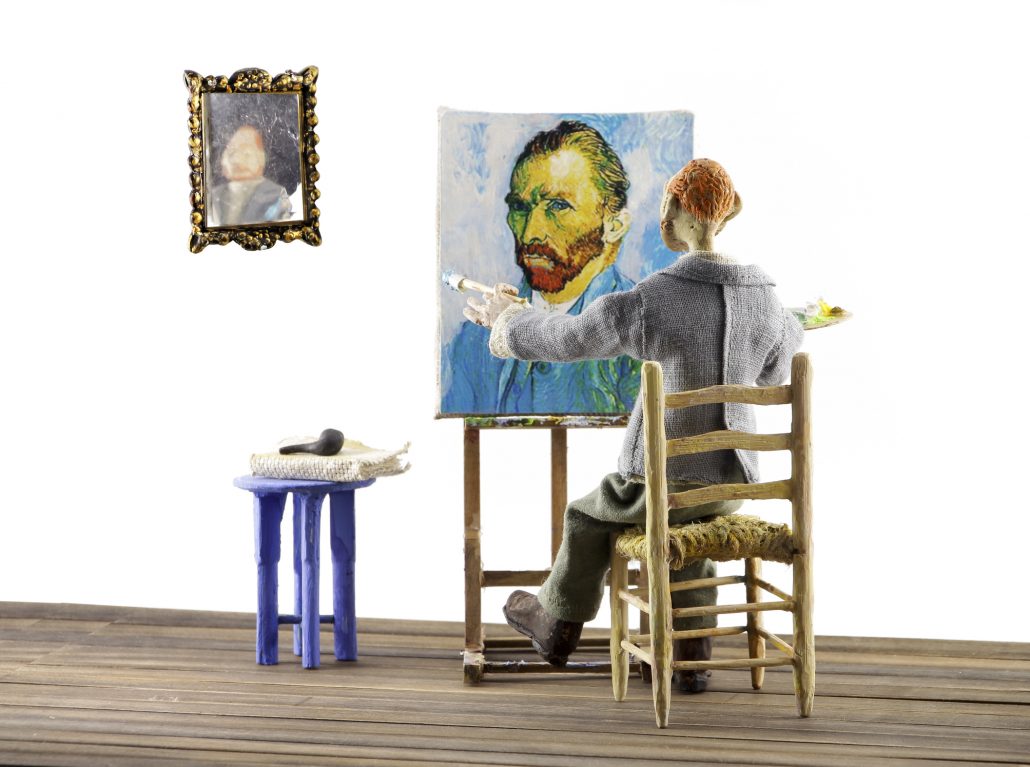6 Famous Artists With Addictions Throughout History

It is news to no one that connections are often made between many of the most famously creative figures in history and drug or alcohol abuse. Creative types have a reputation for being complex and conflicted individuals, and those characteristics also tend to be associated with alcohol and drug abuse. Not to say that creative types must be alcoholics or addicts, but to at least acknowledge how many addicts or alcoholics are incredibly talented people who still find ways of self-expression even through their struggles.
While we hear so many stories of modern celebrities who have either overcome their battles with substance use, or lost their lives to drugs and alcohol, some of the most influential artists in history also faced down similar issues. Whether it is music, art or literature, some of the most amazing works of cultural depth and significance came from people in the grips of addiction or alcoholism.
Here we take a look at 6 famous artists with addictions throughout history. NOTE: Not all the artists are of the visual variety.
-
Charles Dickens
Charles Dickens is probably most well-known for his part in changing the world of storytelling with the famous holiday fiction “A Christmas Carol” and the epic “A Tale of Two Cities”.
What is probably not nearly as well-know was the fact that Charles Dickens was also an opium user. After each day of writing it is said Dickens would settle down to smoke poppy latex from a hookah. He eventually died at the age of 58 from a stroke on June 9, 1870, which many have partially attributed to his opium use.
-
Jackson Pollock
The idea of Jackson Pollock having a little chaos in his life is probably not that strange to anyone who has seen his paintings. Pollock is revered for his messy “drip painting” technique, with the canvas of his work often splattered and streaked with a frenzy of color. In the 1940s Pollock gained instant fame. So when looking into the chaos of his life as an alcoholic, it is easy to see the metaphor.
Pollock’s alcoholism is said to have been exacerbated by the pressure of his success, and in 1956 he died in a drunk-driving accident that also killed one of his passengers.
-
Ernest Hemingway
Ernest Hemingway is probably one of the most notorious alcoholic artists in literature. As a Nobel Prize winner in 1954, Hemingway has been described as a “economical and understated” voice of that “changed the nature of American writing”; one of the greatest writers of the early to mid-twentieth century. He authored such historical works as:
- “A Farewell to Arms” (1929)
- “For Whom the Bell Tolls” (1940)
- “The Old Man and the Sea” (1852)
However, he is also well known for the intimate relationship he had with alcohol. In one tragic peek into how Hemingway reached to the bottle to cope with the world is a quote stating:
“Modern life, too, is often a mechanical oppression and liquor is the only mechanical relief.”
It is believed that his heavy drinking intensified a medical condition, which led to mental confusion and depression. Hemingway eventually took his life in 1961.
-
Philip K. Dick
You may have heard of the cult classic science fiction film Blade Runner, and if so you should get to know the source material, “Do Androids Dream of Electric Sheep?”
This deeply philosophical novel was written by American author Philip K. Dick. Other well-known sci-fi films were also inspired by his work, including:
- Total Recall
- Minority Report
This writer commonly utilized his art as a window into struggles with mental health or substance abuse. In fact, the author wrote dozens of novels about his own experiences of paranoia, schizophrenia, and drug abuse. He was known for taking drugs, particularly amphetamines. Eventually Philip K. Dick suffered a stroke at the age of 53, which cost him his life. Some have attributed this tragedy to the devastating impact of drugs on his body.
-
Jean-Michel Basquiat
Jean-Michel Basquiat is a famous street artist from Brooklyn who went from homeless and unemployed to selling paintings for 5 figures in just 2 years. Suddenly a single work of art by Basquiat was imposing a price-tage of $50,000. This was a height completely unheard of for any artist.
Needless to say, the sudden surge of fame was a shock to the young man’s system. Especially considering he was a self-admitted heroin addict. At one point the young man claimed he was using up to 100 bags of heroin a day.
Tragically, this astonishingly successful artist was found dead in his East Village apartment from a heroin overdose in 1988.
Basquiat was only 27 years old.
-
Vincent van Gogh
This may be the most ‘house-hold name’ on this list; Vincent van Gogh. Just the mention of his names stirs the feeling of fine art, while his impressionist style was a bold and dramatic footing from which the concept of modern art flourished.
In what can be seen as brilliant and breathtaking, his landscapes and soft self-portraits may not seem like the yearnings of a tortured soul. Staring into his most pivotal pieces, such as the instantly recognizable “The Starry Night” one may see bright optimism in the swirling clouds or burning stars. However, Van Gogh grappled with a deep depression and enervating alcoholism.
Van Gogh spoke of his drinking at one point stating alcohol had, “undoubtedly been one of the great causes of my madness.” His drinking grew worse as he indulged deeply in absinthe, and at the young age of 37 years old, Vincent van Gogh took his own life.

